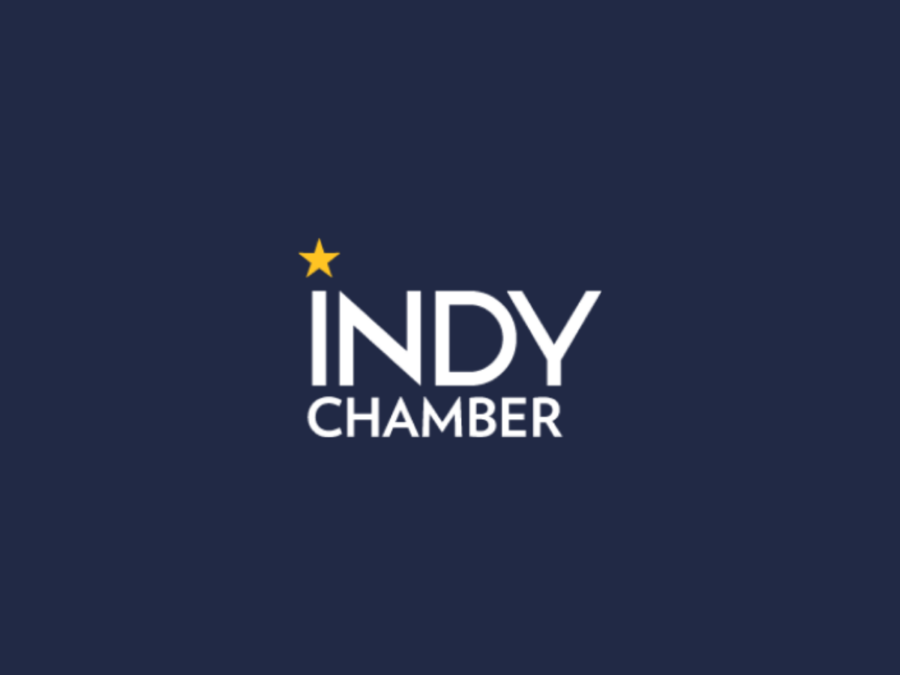Friends, applaud. The comedy is over.
Legend has it these were the final words of the incomparable German composer Ludwig Van Beethoven, uttered as he lay dying—in the middle of a thunderstorm, no less—on the night of March 26, 1827.
It’s unlikely that anyone on the Indy Chamber will summon such erudition when that final dark and stormy night comes for us. In any case, we’re not dying, and these aren’t our final words—but the Indy Chamber’s Business Advocacy team will be catching our breath over the next few weeks as we plan for the year ahead. As such, read ahead for this week’s Legislative Update: Famous Last Words edition.
“Oh Wow. Oh Wow. Oh Wow.” – Steve Jobs (1955-2011)
It’s impossible to know what Jobs was seeing in his last moments, but it was clearly cause for excitement. Our team was sending up similar exclamations as primary election returns came in this past Tuesday night.
At final count, fifteen of seventeen Indy region candidates backed by the Indy Chamber claimed a victory for their primary races, including Indianapolis City Council Leaders and Indy Chamber allies, President Vop Osili and Minority Leader Brian Mowery. Candidate Brienne Delaney also triumphed in her primary race for the 2nd District Council seat. As a former Marion County director of elections and former deputy prosecutor, Delaney is not entirely unknown in local political circles. Still, she undoubtedly faced an uphill battle in challenging a long-time incumbent. The Indy Chamber was a proud backer of Delaney’s candidacy, and we are excited to work with her when she succeeds in November!
Indy Chamber regional mayor allies also fared well on Tuesday, including Mayors Mark Myers (Greenwood) and Matt Gentry (Lebanon). Myers’ primary win was especially encouraging— he has been a key leader and champion of collaborative regional approaches to economic development.
Two additional mayors were winners from Tuesday, and though both were uncontested, they are critical drivers of the Indy region’s progress. Mayor Chris Jensen (Noblesville) has been one of the most vocal supporters of the Indy Chamber’s regional economic development strategy, Accelerate Indy, and Scott Fadness (Fishers), the leader of the Central Indiana Regional Development Authority.
Outside of these victories from long-time Chamber partners, many of the region’s fastest-growing communities are electing new leaders after retirements from their current Mayors. These include tremendous leaders and longstanding friends of the Chamber such as Mayors Dennis Buckley, Steve Collier, Tom DeBaun, and Emily Styron. The Indy Chamber team is excited to see what new opportunities for regional cooperation may exist, and we look forward to introducing our members to the new candidates for Mayor in Beech Grove, Carmel, Greenfield, Lawrence, Shelbyville, Westfield, and Zionsville.
If the Indy Chamber’s Meet the Mayors 2023 event was any indication, regional collaboration will be the name of the economic development game as the metro area looks to compete on a national scale.
If you haven’t had your fill of primary election coverage, you can read full election results here.
“Surprise me.”—Bob Hope (1903—2003)
When Hope’s wife asked him, as he lay on his deathbed, where he wanted to be buried, he used his last words to get in one more joke, saying, “Surprise me.” Most of us will never know what it’s like to be so witty, but we all know that there’s nothing quite like being surprised by a good thing. Let’s return to a couple of the gems from the Legislative Session that deserve a second look.
As we noted in last week’s update, Indiana lawmakers appropriated a whopping $500M over the next two years to support the READI 2.0 program and an additional $500M to a deal-closing fund for the Indiana Economic Development Corporation (IEDC). Five percent of the deal-closing fund will be earmarked for communities of 50,000 people or fewer—an important move to invest in Indiana’s rural Comm while also accelerating growth in the Indy region and other major metros.
The second round of READI funding has a key change from the first iteration—that no federal strings are attached will mean increased flexibility for communities across the state to make investments in creative projects to enhance their local competitiveness. These opportunities may be less about bricks and mortar and more about programming and coordination for attracting, retaining, and upskilling talent. It appears the IEDC is prepared to leverage that flexibility and use READI 2.0 funds to support innovative projects that are highly responsive to communities’ individual needs and strengths.
Additionally, the $40M allocation to the Indiana Destination Development Corporation (IDDC) is a significant step forward for the state’s ability to tell the Hoosier story nationally and internationally. The IDDC is focused on elevating Indiana’s brand to attract and retain businesses, talent, students, and visitors. The Indy Chamber’s Life in Indy initiative shares the goal of telling the region’s story—we hope to explore opportunities to align and partner with IDDC to take the impact of these dollars to the Next Level.
“Money can’t buy life.”—Bob Marley (1945—1981)
We don’t disagree with this final expression from the great Jamaican sage. However, money can—when wisely invested—provide new opportunities to change lives.
That’s how we’d characterize the Indiana General Assembly’s decision to include funding for Downtown Indianapolis to create a low-barrier shelter in the state’s newest budget. Regular update readers know that the Indy Chamber has been advocating for the creation of a low-barrier shelter for Indianapolis since our 2019 Leadership Exchange trip to San Antonio and the campus of that city’s low-barrier shelter, Haven for Hope. In response to the urging of Indy Chamber members and others in the business community, the state created a task force to investigate the feasibility of a low-barrier shelter facility in or near Downtown Indianapolis.
All of this activity culminated in last week’s $20M appropriation of state funding to a low-barrier grant fund which Indianapolis can apply for and use to develop a low-barrier facility. While city leaders have tried to address the issue from a variety of angles, construction of a low-barrier shelter—and a sustainable plan to fund the attendant programs and services—are the best options we’ve seen for meeting the needs of downtown businesses and those of our unhoused neighbors.
The state budget also cleared the way for Indianapolis to create an Economic Enhancement District (EED) as a means of generating local revenue to fund operating and programming expenses for the new, low-barrier shelter facility. The Indiana Housing and Community Development Authority will hold the $20M as a grant for Indianapolis authorities and will presumably make a sustainable local operating plan a requirement for receiving funding.
The EED is a new tool, and its introduction provides an opportunity at the local level for a renewed conversation about how to create resources that enhance the safety and vitality of Downtown. Indianapolis is currently the largest city in the nation without sustainable, dedicated funding to support public safety, homelessness response, and cleanliness in the central business district. We are also living through a period of intense transition for urban centers around the globe—where the form and function of downtowns will change significantly, from commuting centers to live-work neighborhoods, among other shifts.
As many have said in recent months, if Indianapolis is to overcome these historic trends, Downtown will need investment, a network of ardent supporters, and a vision for its future. A core element of this vision is a strategy for addressing the challenges of homelessness in the heart of our capital city—an issue that is both an economic and a moral imperative. The next few months will be critical to advance this conversation and these strategies, and the Indy Chamber will be there each step of the way.
As a sign-off before our brief respite—we want to give huge thanks to our readers. At its best, the Indy Chamber functions as a forum for Central Indiana’s business and civic communities to connect, strategize, and mobilize around ideas to move the Indy region forward. Legislative Updates are our way of making sure that you know everything we know about ongoing developments to better this community that we all love. A big thanks from the Business Advocacy team to you—we’ll be back with fresh updates very soon!
An Opportunity to Act
We invite you to join our efforts. Be sure to tag @IndyChamber, @staylorhughes, and @Adam_Burtner on Twitter to show your support for legislation that’s beneficial to your business and our state’s success. Interested in supporting the #IndyChamberAdvocacy priorities? Click here to access a digital toolkit to help spread the word.
Never Miss an Update
Stay informed on all things Statehouse. The Indy Chamber’s Business Advocacy team provides curated Legislative Updates every week. Sign up for one email a week!




